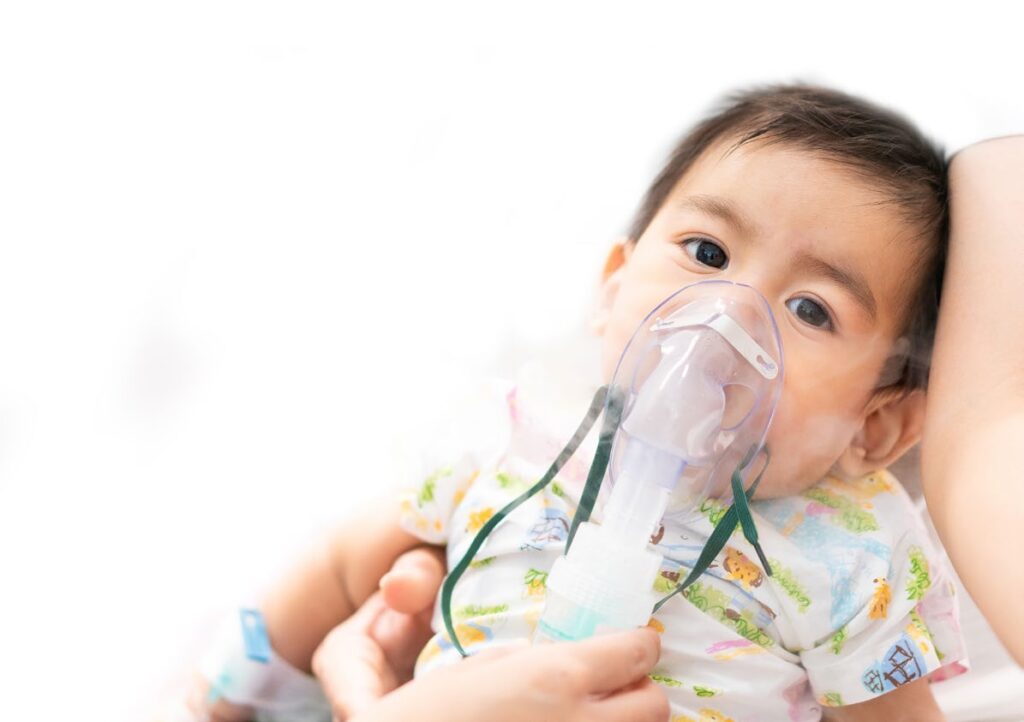Home » Respiratory Syncytial Virus (RSV)
Ireland is currently experiencing a significant increase in respiratory syncytial virus (RSV) presentations. In this month’s CPD article, Susan O’Dwyer, Head of Professional Services at the IPU, provides an overview of RSV, including details on symptoms, treatment and when to seek further medical advice.

Respiratory syncytial virus (RSV) is a common respiratory virus that usually causes mild, cold-like symptoms. For most people RSV is a mild infection, and they recover in about two weeks. However, the virus can be more serious for:
It is the most common cause of bronchiolitis (inflammation of the small airways in the lung) and pneumonia in infants under one year of age. 1-2% of children younger than six months with RSV infection may need to be hospitalised.
The symptoms of RSV include:
Symptoms generally appear two to eight days after a person has been infected and remain for three to four days, before slowly getting better within two to three weeks. In very young infants, irritability, decreased activity and breathing difficulties may be the only symptoms of infection.
In situations where babies and young children develop bronchiolitis, their symptoms may get worse and may also include:
Please put below info into info boxes – see https://www2.hse.ie/conditions/rsv/ for an example of presentation.
Parents should be advised to bring a child to a GP or Emergency Department if a child has symptoms of RSV and:
If the child has any of the following symptoms parents should be advised to call 999 or 112 or to go to their nearest emergency department:
RSV is highly contagious and is spread by large droplets and by secretions from contact with an infected person. The infectious period lasts from shortly before onset of symptoms, to one week after the onset of symptoms.
RSV can survive on hard surfaces/objects (for example worktops or doorknobs) for four to seven hours. It typically lives on soft surfaces such as tissues and hands for shorter periods of time. Spread can occur indirectly through contact with RSV-contaminated hands, handkerchiefs, eating utensils or other objects or surfaces.
Infection control measures such as frequent, careful handwashing, persons covering their nose and mouth (preferably with a tissue) when they cough or sneeze, properly disposing of tissues in a rubbish bin and avoiding sharing items such as cups, glasses and utensils are important in preventing spread.
Treatment for RSV involves management of symptoms. In children paracetamol or ibuprofen can be used to treat a child who is distressed due to fever. In general, antipyretic medications should not be used with the sole aim of reducing body temperature and should be continued for only as long as the child appears distressed. Parents/carers should be advised not to attempt to reduce fever by under-dressing the child or with use of tepid sponging. Children should be encouraged to take fluids regularly and where infants are breastfed this should be continued. Parents/carers should also be advised to check on the child regularly, including through the night, and to seek medical advice if they are unable to cope, or if the child deteriorates.
Patients with severe infection will require hospitalisation and oxygen therapy. Rarely, ribavirin may be used in the treatment of persons with severe illness under the supervision of an infection specialist.
Antibiotics are not effective against RSV.
The National Immunisation Advisory Committee (NIAC) recommends the passive immunisation of all infants against RSV during their first RSV season.
Palivizumab, (Synagis) a monoclonal antibody therapy, is licensed for the prevention of serious lower respiratory tract infection caused by RSV in infants at high risk of infection. It provides passive immunity against RSV by inhibiting RSV binding to host cells and preventing fusion of infected cells with adjacent cells. Nirsevimab, (Beyfortus), a long-acting monoclonal antibody, indicated for the prevention of RSV lower respiratory tract disease in neonates and infants during their first RSV season has recently been authorised in the EU. NIAC have advised that, once available, nirsevimab should replace palivizumab for those high-risk infants and children who are currently eligible to receive palivizumab.
Passive immunisation of infants can also be achieved with the use of a maternal vaccine given in pregnancy thus providing infant protection through transplacental antibody transfer. The vaccine Abrysvo has recently been authorised in the EU for this purpose.
NIAC also recommends RSV vaccination for those aged 65 years and older with either Arexvy or Abrysvo, both of which have similar safety and efficacy profiles.
No decision has been made as of yet regarding the incorporation of any of the vaccines into the national vaccination programmes.
“RSV is highly contagious and is spread by large droplets and by secretions from contact with an infected person. The infectious period lasts from shortly before onset of symptoms, to one week after the onset of symptoms.”
You can find more information on RSV in Chapter 18a: Respiratory Syncytial Virus of the Immunisation Guidelines for Ireland, as well as on the website of the Health Protection Surveillance Centre (HPSC), hpsc.ie. For patients/parents/carers the following resources might also be helpful:
Susan O’Dwyer

Head of Professional Services, IPU
Highlighted Articles